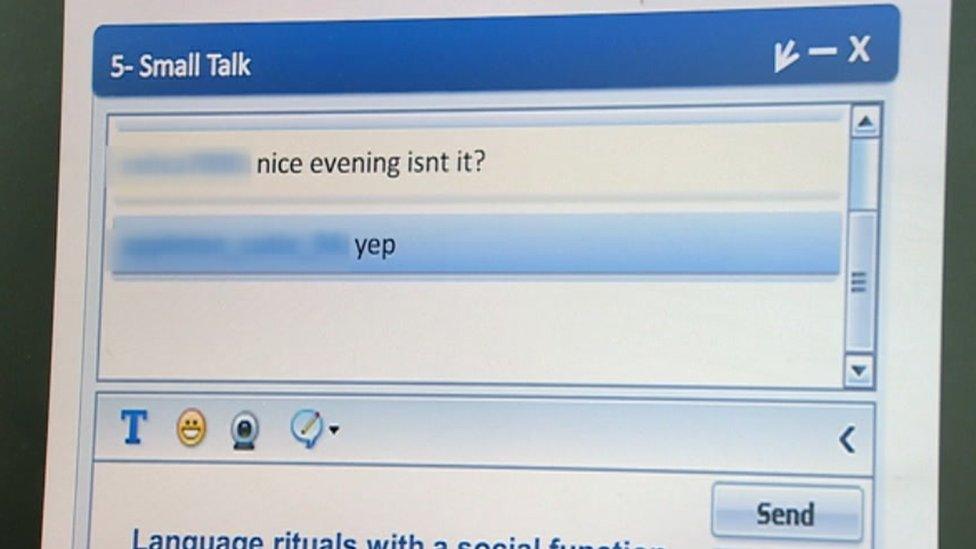Call made to publish online grooming research findings
- Published

Academics want their research into online sexual abuse published so parents can spot if their child is being groomed.
The Swansea University team said a study of 200 online groomers' chat logs delivered unexpected conclusions.
Prof Nuria Lorenzo-Dus will publish her findings soon and wants funding to turn the research into public information.
In the past five years, 155 people in Wales have been reported to police for meeting a child following grooming.
Prof Lorenzo-Dus, who specialises in English language and applied linguistics, said groomers did not lie about their age and could operate very quickly.
In one case, she said it took less than 20 minutes to persuade a child to meet in real life.
Prof Nuria Lorenzo-Dus said online groomers would compliment victims before trying to isolate them form friends and relatives
"These online groomers are highly skilled, persuasive communicators," she said.
"They're using a very sophisticated toolkit in order to persuade their victims that they need to engage in a sexual relationship with a groomer."
Prof Lorenzo-Dus said the clues for parents were there if they knew what to look for; groomers often gained trust by paying their victims a compliment which was not necessarily of a sexual nature.
"They may be complimenting their victims on their maturity, on how well they play a particular game, for example an online game, or other aspects which do not seek or target or address sexual topics."
She also said groomers would try and isolate the victim from people close to them, such as parents and friends, in order to make their relationship special and unique.
Just before Christmas, the NSPCC reported Childline was contacted by 85 children in Wales about online sexual abuse in the previous 12 months - contributing to a 24% rise in UK calls on the previous year.
South Wales Police Ass Ch Con Jonathan Drake said 12 warrants were executed against suspected offenders in the past month.
"Day in, day out teams across Wales are doing search warrants at offenders' addresses, seizing computers, immediately analysing technology and other things they find there," he added.
- Published15 December 2016
- Published19 August 2016